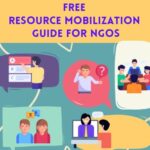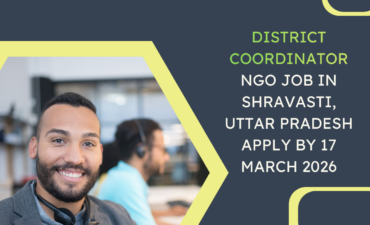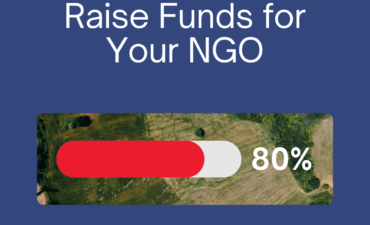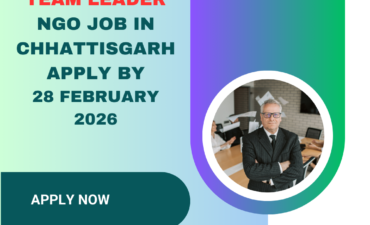Introduction: Free Resource Mobilization Guide for NGOs, in the realm of Non-Governmental Organizations (NGOs), effective resource mobilization is imperative for the successful execution of projects and the sustained impact of initiatives. This guide aims to provide a comprehensive resource for NGOs seeking to enhance their resource mobilization efforts without incurring substantial financial costs. By utilizing free and accessible tools, strategies, and platforms, NGOs can optimize their capacity to attract, manage, and leverage resources for their missions.
The primary objective of this guide is to empower NGOs with practical insights and actionable steps to mobilize resources effectively without the burden of significant financial investments. It recognizes the diversity of NGOs, acknowledging that their resource needs and capacities may vary. Whether you are a small grassroots organization or a larger established entity, the guide aims to offer adaptable strategies that align with your organizational goals.
Understanding Resource Mobilization Free Resource Mobilization Guide for NGOs
Resource mobilization is the strategic process of acquiring and managing the necessary resources – both tangible and intangible – to achieve an organization’s goals, particularly in the context of non-governmental organizations (NGOs). It encompasses all the activities involved in securing new resources, as well as optimizing the utilization of existing ones.
Let’s not dive into the Definition and Scope Free Resource Mobilization Guide for NGOs
Definition: Resource mobilization refers to the systematic process of acquiring and managing various resources, including financial, human, and in-kind, to support an organization’s mission and objectives.
Scope: This process extends beyond simply acquiring resources.
It involves:
- Planning:Identifying resource needs based on organizational goals.
- Acquisition:Securing resources through various strategies like grants, fundraising, volunteers, and collaborations.
- Management:Optimizing resource utilization, ensuring efficient allocation, and minimizing waste.
- Evaluation:Assessing the effectiveness of resource mobilization strategies and their impact on achieving goals.
Types of resources NGOs can explore and leverage them to their advantage
NGOs rely on a variety of resources to function effectively and achieve their goals. These resources can be broadly categorized into two main types tangible and intangible.
Tangible Resources
- Financial resources:These are the fundamental lifeblood for NGOs, allowing them to run their operations and programs.
- Grants:Money provided by governments, foundations, or corporations for specific purposes and projects.
- Donations:Financial contributions from individuals, sometimes through recurring memberships.
- Fundraising events:Special events like galas, auctions, or walkathons designed to raise money.
- Human resources:The people who dedicate their time and skills to the NGO’s cause.
- Paid Staff:Employees who handle the day-to-day operations, program implementation, and management of the NGO.
- Volunteers:Individuals who offer their time and expertise without payment, providing extra support in various aspects of the NGO’s work.
- In-kind donations:Physical goods or services donated to support the NGO.
- Goods:Items like food, clothing, office supplies, technology, furniture, etc.
- Services:Pro bono or discounted services like legal counsel, accounting, marketing, or specialized skills.
Intangible Resources
- Expertise and knowledge:The collective knowledge, skills, and experience possessed by the NGO’s staff, volunteers, and board members. This expertise is vital for problem-solving, designing effective programs, and ensuring that the NGO’s work is impactful.
- Networks and relationships:The connections an NGO maintains with other NGOs, government agencies, businesses, influential individuals, and the community at large.
These relationships can provide
- Partnerships:Opportunities to collaborate on projects, or share resources.
- Advocacy:Support in influencing policies and raising awareness.
- Access to resources:Gain access to additional funding, knowledge, or other support.
- Reputation and legitimacy:The level of trust, respect, and credibility an NGO has built within its community and beyond. A strong reputation acts like a magnet
- Attracts donors: Donors are more likely to support an NGO they believe in.
- Builds partnerships: Organizations and individuals are more willing to partner with a well-respected NGO.
- Enhances credibility: A good reputation increases the NGO’s influence and ability to create change.
Importance of Diversification (Free Resource Mobilization Guide for NGOs)
The importance of diversification in any organization, whether in the corporate or nonprofit sector, cannot be overstated. Diversification is a strategic approach that involves spreading risks and resources across a variety of areas, services, or investments. In the context of NGOs, diversification is crucial for ensuring resilience and sustainability.
By diversifying funding sources, organizations reduce their vulnerability to fluctuations in any single revenue stream, mitigating the impact of economic uncertainties or changes in donor priorities. Moreover, diversification extends beyond financial aspects; it includes a varied portfolio of programs, partnerships, and outreach efforts.
This approach enables NGOs to adapt to evolving needs, engage with a broader audience, and increase their overall impact. Embracing diversification is not merely a risk management strategy but a proactive measure that fosters innovation, resilience, and long-term organizational success.
Assessing NGO Needs (Free Resource Mobilization Guide for NGOs)
- Identifying Project Goals and Objectives:
The initial step in assessing NGO needs involves a meticulous identification of project goals and objectives. This process is fundamental as it establishes the overarching purpose and desired outcomes of the NGO’s initiatives. By clearly defining specific, measurable, achievable, relevant, and time-bound (SMART) goals, NGOs provide a foundation for subsequent assessments.
Understanding the intended impact and outcomes ensures that resources are aligned with the mission, guiding subsequent strategies and resource mobilization efforts. Identifying project goals and objectives not only serves as a roadmap for the organization but also aids in communicating the NGO’s vision effectively to stakeholders, donors, and beneficiaries.
- Conducting a Resource Gap Analysis:
Conducting a resource gap analysis is pivotal for evaluating the disparity between the resources currently available to the NGO and those required to achieve its goals. This assessment involves a comprehensive review of financial resources, human capital, technology, and infrastructure. By identifying gaps in these key areas, NGOs gain insights into areas that require attention and investment.
The resource gap analysis facilitates strategic decision-making by highlighting priority areas for resource mobilization efforts. Additionally, it serves as a basis for developing realistic budgets, allocating resources efficiently, and establishing a roadmap for sustainable growth. Ultimately, this analysis empowers NGOs to address deficiencies proactively and optimize their resource utilization in alignment with their mission and objectives.
Building a Resource Mobilization Strategy (Free Resource Mobilization Guide for NGOs)
Setting Clear Objectives:
Setting clear and well-defined objectives is the foundation of an effective resource mobilization strategy for NGOs. These objectives should align with the organization’s mission, vision, and identified needs. Clear objectives help in providing a roadmap for resource mobilization efforts, ensuring that every initiative is purpose-driven. Objectives should be specific, measurable, achievable, relevant, and time-bound (SMART), providing a tangible framework for evaluation and progress tracking. Whether the goal is to diversify funding sources, attract skilled volunteers, or secure in-kind donations, clarity in objectives allows the NGO to communicate its vision effectively and rally stakeholders towards a common purpose.
Creating an Action Plan for Mobilizing both Tangible and Intangible Resources:
Creating a comprehensive action plan is essential for translating resource mobilization objectives into tangible outcomes. The plan should encompass strategies for mobilizing both tangible, such as financial and material resources, and intangible resources, such as expertise and community support.
- Financial Resources: Outline specific fundraising activities, whether through grant applications, online campaigns, or community events. Clearly define target amounts, timelines, and key performance indicators for measuring success.
- In-Kind Donations: Develop strategies to identify, request, and manage in-kind donations. This may involve establishing partnerships with local businesses, organizing donation drives, or leveraging online platforms to connect with potential donors.
- Volunteer Engagement: Lay out plans for attracting and engaging volunteers. Clearly define roles, responsibilities, and the skills needed. Utilize social media, community networks, and outreach events to recruit individuals passionate about the NGO’s mission.
- Partnerships and Collaborations: Identify potential partners, whether other NGOs, businesses, or government agencies, and outline strategies for building collaborative relationships. Partnerships can bring both financial and non-financial resources to the table.
- Community Engagement: Develop initiatives to foster community support. This could involve organizing awareness campaigns, conducting workshops, or creating avenues for community members to contribute their time or skills.
- Capacity Building: Consider strategies for enhancing the internal capacity of the NGO. This may include training programs for staff, adopting new technologies, or improving organizational processes.
- Monitoring and Evaluation: Establish mechanisms for monitoring and evaluating the effectiveness of the resource mobilization efforts. Regularly assess progress towards objectives, gather feedback, and adapt the action plan as needed.
By creating a detailed action plan that integrates both tangible and intangible resource mobilization strategies, NGOs can enhance their ability to meet organizational goals and address identified needs effectively. This proactive approach ensures a holistic and sustainable approach to resource mobilization.
Resource Sharing Through Networking and Relationship Building (Free Resource Mobilization Guide for NGOs)
Establishing and Nurturing Partnerships:
Establishing and nurturing partnerships is a fundamental aspect of resource sharing for NGOs. Partnerships can bring in diverse resources, including financial support, expertise, and access to networks. NGOs should identify potential partners whose values align with their mission and objectives.
This could include businesses, government agencies, academic institutions, or other non-profit organizations. Building strong relationships involves effective communication, mutual understanding, and a shared commitment to common goals. Regular communication, collaboration on projects, and joint initiatives strengthen partnerships over time, creating a sustainable network of support and resources.
Engaging with the Local Community:
Community engagement is a powerful strategy for resource sharing, especially in the context of NGOs. Engaging with the local community not only raises awareness about the organization’s mission but also opens avenues for valuable contributions. This can include in-kind donations, volunteer participation, and a sense of ownership and support from the community.
NGOs can organize community events, workshops, and outreach programs to establish a direct connection with local residents. By understanding the community’s needs and involving them in decision-making processes, NGOs can harness the power of collective action, creating a shared pool of resources that benefit both the organization and the community it serves.
Collaborating with Other NGOs:
Collaboration with other NGOs is a strategic approach to resource sharing that promotes synergy and efficiency. NGOs often share common goals or operate in related areas, making collaboration mutually beneficial. By sharing resources such as knowledge, expertise, and best practices, NGOs can amplify their impact.
Collaborative projects, joint initiatives, and shared events can attract a broader audience and tap into each organization’s unique strengths. This approach not only maximizes the impact of individual efforts but also creates a supportive network within the non-profit sector. Establishing clear communication channels, defining roles and responsibilities, and fostering a spirit of cooperation are essential elements in successful collaborations among NGOs.
In summary, resource sharing through networking and relationship building involves cultivating partnerships, engaging with the local community, and collaborating with other NGOs.
These strategies create a robust ecosystem of support, allowing NGOs to access a diverse range of resources that contribute to their sustainability and impact. The power of these networks lies in their ability to foster collective action, leverage shared expertise, and create a positive ripple effect that extends beyond individual organizations.
On a closing note
In navigating the complex landscape of resource mobilization for NGOs, this guide serves as a compass, emphasizing the significance of strategic planning and diverse approaches. From setting clear objectives to creating actionable plans for tangible and intangible resource acquisition, the guide underscores the importance of adaptability and creativity.
By delving into the realms of partnerships, community engagement, and collaborative efforts with other NGOs, organizations can forge a resilient path towards sustainability. Embracing these principles not only enhances an NGO’s capacity to address its needs but also fosters a sense of collective responsibility and impact within the broader community.
In the spirit of continuous improvement, the guide encourages NGOs to remain dynamic, innovative, and committed to their missions, ensuring that the journey of resource mobilization is not merely a means to an end but a transformative process that elevates the organization and the communities it serves.
Related Good Reads, Link
Hey, STEAL our Best Premium Content For Absolutely Free, Check Out the Links below
HOPE these will add value to your existing skills and knowledge
Our information bears no cost (it’s absolutely FREE), don’t let valuable information slip away.
Join our community of avid readers who are always in the know. Subscribe to our website; stay connected and engaged with the latest news, trends, and developments by subscribing today.
(PUSH the bell ICON)
Leverage the power of knowledge to propel your organization to new heights. Don’t miss out to explore our content
- Latest Funds for NGOs,
- NGO Jobs
- Resources (Helpful Guides and Courses)
- Premium Resources
- NGO related articles
Empowering Humanity through Funds, Resources and Collective Action
Sharing is Appreciated









